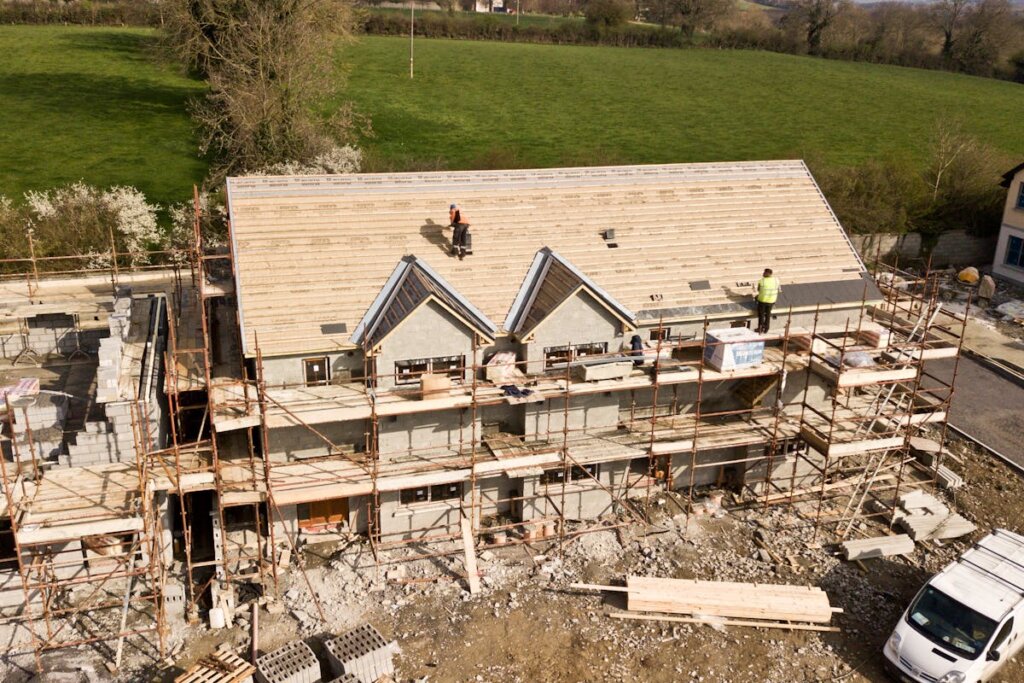
Remodeling or rebuilding a home in Connecticut is an exciting opportunity to create the space you’ve always wanted. However, before you dive into the project, it’s important to understand the financial side of things.
Construction costs can vary widely based on location, materials, and the complexity of your design. Taking time to learn how CT construction cost estimates work will help you budget properly and avoid unpleasant surprises along the way.
Why Understanding Construction Costs Matters
Renovating or rebuilding your home isn’t just about aesthetics—it’s also a financial investment. Knowing the average CT construction cost before starting allows you to set realistic goals, secure the right financing, and prevent overspending.
Too often, homeowners underestimate how quickly costs can add up once the project begins. Labor shortages, permit fees, and material price fluctuations can impact your total spending. By understanding the breakdown of construction expenses, you can plan smarter and keep your project within budget.
Factors That Influence Construction Costs in Connecticut
Connecticut has one of the higher average construction costs in New England, primarily due to labor demand, building regulations, and weather conditions that affect building timelines. The CT construction cost per square foot typically ranges from $175 to $400 or more, depending on the project’s complexity and quality of finishes.
Several factors determine where your project falls on that spectrum. Location plays a major role—building in areas like Fairfield County or West Hartford often costs more than rural regions because of higher labor and permit expenses. The size and design of your home also impact costs. Larger homes and custom designs naturally require more materials, engineering, and labor hours.
Material quality and selection are other significant contributors. Premium finishes such as granite countertops, hardwood floors, or energy-efficient windows can raise your costs considerably. Additionally, the availability of materials and supply chain fluctuations may affect overall pricing. Understanding these elements early ensures that your project runs smoothly and stays within budget.
Remodeling vs. Rebuilding: Which Is More Cost-Effective?
One of the biggest decisions homeowners face is whether to remodel or completely rebuild. Remodeling involves updating an existing structure, while rebuilding means tearing down and starting from scratch. Both options have pros and cons, and understanding how CT construction cost applies to each can guide your decision.
Remodeling tends to be less expensive upfront, especially if you’re focusing on specific areas like kitchens or bathrooms. The average kitchen remodel in Connecticut can range from $30,000 to $80,000, depending on design choices. Bathroom renovations might cost between $15,000 and $40,000. However, older homes with outdated electrical or plumbing systems can drive up expenses unexpectedly.
Rebuilding can sometimes be more cost-effective in the long run if your home requires extensive repairs or structural changes. When a home’s foundation, framing, or utilities need major updates, starting over can be more efficient than continuous patchwork renovations.
A full rebuild in Connecticut generally ranges between $250 and $450 per square foot. Though higher upfront, it offers the benefit of modern materials, better insulation, and increased property value.
Hidden Costs Homeowners Often Overlook
Even with a detailed budget, it’s easy to miss certain expenses that arise during construction. Permit fees, utility hookups, landscaping, and design consultations can all affect your total CT construction cost. For example, Connecticut’s building permits are calculated based on project value, meaning larger or more complex renovations come with higher fees.
Additionally, depending on where you live, you may need to account for zoning restrictions, environmental assessments, or foundation inspections before construction begins. These preliminary costs can add thousands to your project. Temporary housing, storage fees, and waste disposal are also important considerations if you need to move out during the process.
Working closely with a licensed contractor or project manager can help you uncover these hidden costs before they surprise you. A professional can provide a detailed cost estimate that includes both expected and potential expenses.
How Labor Affects CT Construction Cost
Labor is one of the largest components of any construction project. In Connecticut, skilled tradespeople like electricians, plumbers, and carpenters are in high demand, which raises hourly rates. Labor costs typically account for 30% to 50% of your total CT construction cost.
Seasonal demand can also impact pricing. Summer and early fall are peak construction seasons in Connecticut, so labor rates and availability can fluctuate during these times. Planning your project in the off-season—such as winter or early spring—can sometimes lead to more competitive bids.
To keep labor costs manageable, always gather multiple estimates and check contractor references before committing. Hiring licensed and insured professionals may cost more upfront but can save you money and headaches later by preventing costly mistakes.
Financing Options for Your Project
Once you have an idea of your total CT construction cost, the next step is figuring out how to pay for it. Many homeowners finance their remodeling or rebuilding projects through home equity loans, personal loans, or construction loans. A home equity line of credit (HELOC) allows you to borrow against your home’s value, while construction loans release funds as the project progresses.
If you plan to sell your home after renovations, some local real estate experts suggest focusing on projects that offer the best return on investment, such as kitchen remodels, bathroom upgrades, or adding living space. Strategic renovations can boost your home’s resale value and help offset construction expenses.
Managing Costs Through Smart Planning
Controlling your CT construction cost begins with careful planning. Start by developing a detailed project scope with your contractor that clearly outlines your goals, materials, and deadlines. This document helps prevent miscommunication and keeps the project on track.
Another effective way to manage costs is to prioritize functionality over luxury. While it’s tempting to choose high-end finishes, there are many mid-range materials that offer similar durability and aesthetics at a fraction of the price. Also, consider repurposing existing elements of your home, like doors, cabinets, or flooring, to save on material expenses.
It’s also smart to build a 10–15% contingency fund into your budget. Unexpected issues—such as structural problems or weather delays—can occur even with the best planning. Having this cushion ensures you won’t be caught off guard financially.
How Neighbor Joe Can Help Homeowners in Connecticut
If you’re considering a major remodel or rebuild but don’t want to manage the stress, Neighbor Joe can help. Instead of sinking thousands into renovations, you can sell your home as-is for a fair price and move on to your next chapter. We specialize in fast, cash-based transactions, helping home selling in CT sell their properties without repairs, listing fees, or delays.
By choosing to sell directly to Neighbor Joe, you avoid the uncertainty of fluctuating CT construction cost estimates. We provide a no-obligation cash offer within 24 hours and can close in as little as seven days. This is a great option if you’d rather skip the hassle of permits, contractors, and escalating project costs.
Final Thoughts
Understanding CT construction cost is essential before remodeling or rebuilding. From material prices to labor expenses, every decision affects your bottom line. Take time to research, plan carefully, and consult local professionals before committing to any major project.
Whether you decide to remodel, rebuild, or sell as-is, having a clear understanding of construction expenses ensures you make the best choice for your financial and personal goals.

